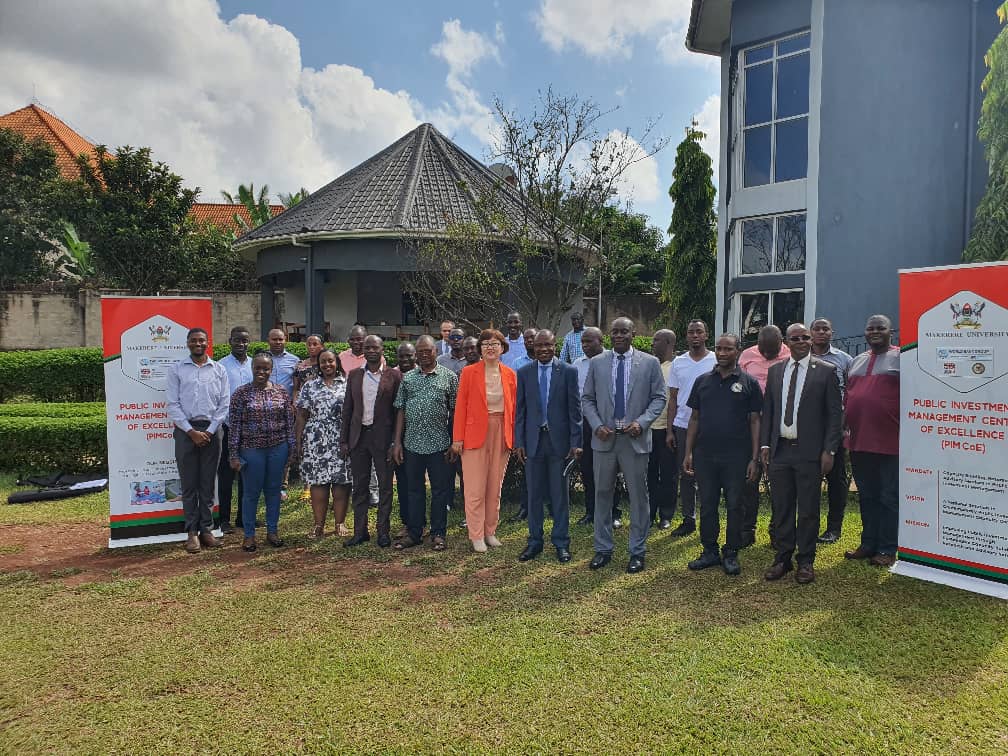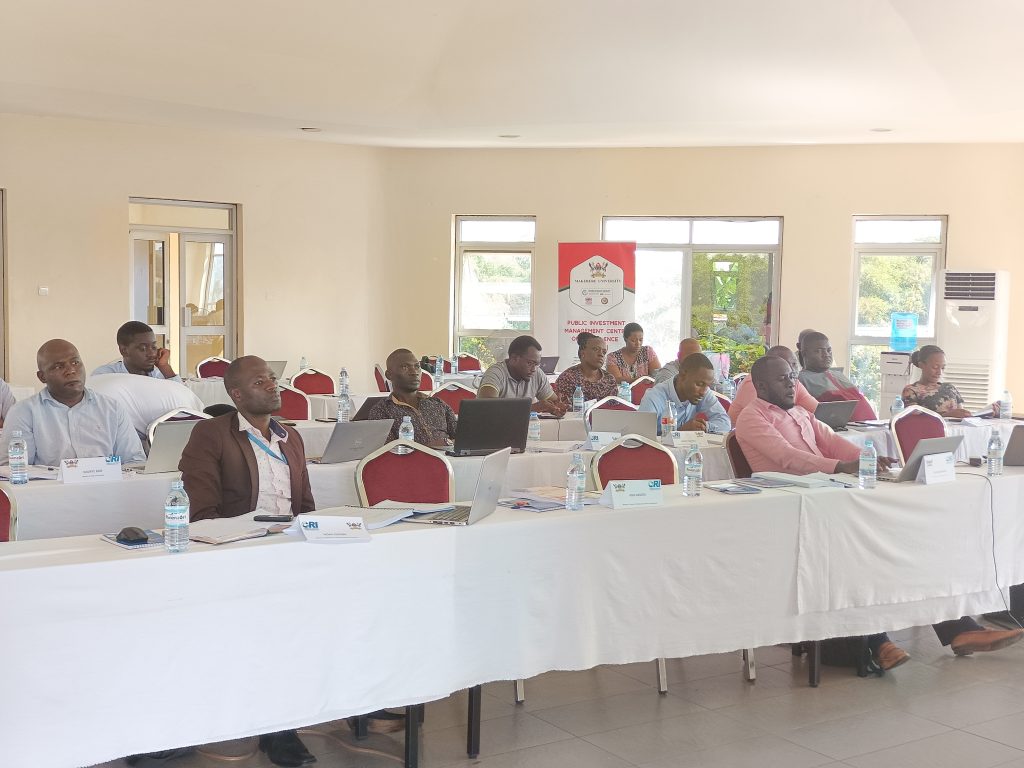
The Public Investment Management Centre of Excellence has started the second phase of training to cover the Economic Analysis and Stakeholder Analysis Module.
The 2-weeks training, on Program on Investment appraisal and Risk Analysis, will this time round focus on the Economic and Stakeholder Analysis.
Economic analysis is a key tool for achieving value for money and satisfying public accountability requirements. It is a systematic process for examining alternative uses of resources, focusing on assessment of needs, objectives, options, costs, benefits, risks, funding, affordability and other factors relevant to decision making. The first phase of the training focused on Financial Analysis.
The training, which started yesterday in Jinja, was opened by the Principal of CoBAMS, Prof. Eria Hisali. Also present at the opening were the Commissioner Department of Projects Analysis and Public Investments in the Ministry of Finance, Planning and Economic Development (MoFPED), Mr Ashaba Hannington and the Public Investment Management Centre of Excellence (PIM CoE) Principal
Investigator, Prof. Edward Bbaale.
Speaking at the opening, Prof. Bbaale thanked the Centre staff for organizing the training. He further thanked the MoFPED for the support rendered to the Centre. He welcomed all the trainers, some of who came from Cambridge Resources International, Makerere University School of Economics and MoFPED.
In February 2022 the students were trained in Financial and Risk Analysis which seeks to explore the profitability of projects, this however, Commissioner Ashaba said is not enough.
“We have to go a step further and study the impact of the project on the economy at large, this why we do the economic analysis to see the other impacts of a project such as environmental impact, can a project pay taxes or benefit from subsidies or be tax exempt. Does the project cause externalities such as pollution?
These can’t be assessed through financial analysis so we have to conduct an economic analysis, hence this training,” he said.
The training will also cover stakeholder analysis which deals with the impact of the project on the various stakeholders and risk analysis which allows us to assess how to mitigate the risks.
Mr Ashaba said, the Ministry, which has offered funding to the PIM Centre of Excellence made this decision in an effort to reduce the cost of training of its staff and also build local capacity. He said the ministry has been spending over $15,000 on training one person at Queens University in the Canada.

“We decided to collaborate with the PIM CoE so that we teach this course locally, cheaply and more sustainably,” Mr Ashaba said.
In an effort to bridge the gap between theory and practice, the trainers are drawn from Makerere University, CRI and the MoFPED Department of Project Analysis and Public Investments which supports appraisal of government projects.
The government hopes that the Centre will grow to train people from across the African continent and in the long run become self-sustaining. It is hoped that hundreds of people will get training from the Centre.
“This is a discipline which requires as many people as possible to understand why proper assessment of projects is important for efficiency gains of the economy but also for the practice is a more acceptable way of doing business both government and private,” Mr Ashaba said.
Prof. Hisali, while addressing the participants appreciated the trainers and the participants and congratulated them upon completing the first phase of the training. He called on the trainers to pay close attention to the course content because the country needs to improve the efficiency of public spending to have higher Returns on Investments (RoI).
“We need to begin using the knowledge that we have acquired and use it relevantly to handle public investments,” Prof. Hisali cautioned.
“Work as an entire group to put something on the table. Look at the projects in the pipeline and give immediate relevancy and support”.
The Principal appreciated the center staff for organizing the course training and wished the participants a fruitful 2 weeks ahead.
The Manager PIM CoE thanked the government for the support rendered and encouraged participants to maximize the opportunity not only to gain knowledge but to understand the practical requirements needed for efficient appraisal of public investment projects
